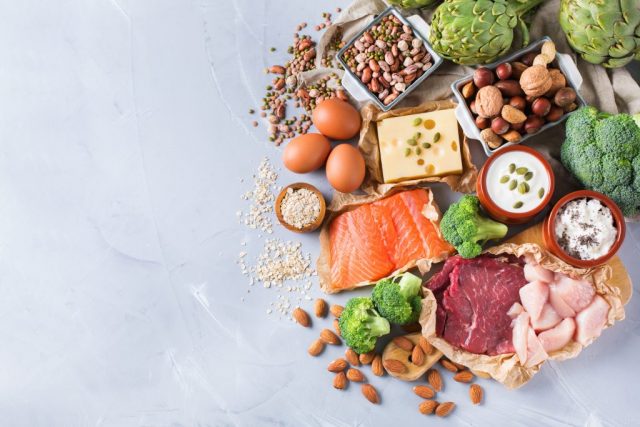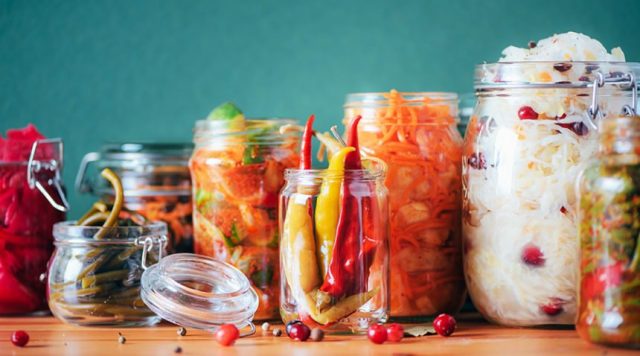
Inflammation is an alert system in the body that announces damage in a certain area. In response, the immune system acts by repairing the damage. This is called acute inflammation, and it’s the body’s way of fighting infections, illnesses, or injuries. However, a response sometimes occurs when the immune system has nothing to fight, which is known as chronic inflammation. And since there’s no damage to heal, it starts to destroy other parts of the body. Then you’d need to find a remedy because it could lead to other severe health conditions.
One of the first things people do in case of inflammation is to get a prescription or over-the-counter pain medication. While there’s nothing wrong with that, changing your lifestyle, including in your diet food with anti-inflammatory effects, and using other alternative natural therapies and substances could also remedy the inflammation. By fighting inflammation, you’re helping the body boost its defense by controlling or reversing inflammation.
To fight inflammation in your body, try to follow these seven natural ways.
1. Make Lifestyle Changes

Because inflammation affects the entire body, fighting it starts with taking better care of yourself. By making healthy changes in your lifestyle, you’re making the first step toward fighting inflammation. This includes eating a healthy diet, staying active, managing stress, and getting enough sleep.
If you take alcohol, you may need to cut back. If you smoke, you may need to consider quitting. Smoking, especially, is said to cause the narrowing of arteries, limiting the circulation of oxygen to body parts. This could make inflammation worse.
2. Try Using Oils And Herbs

It’s claimed that some essential oils may contain high levels of inflammatory properties. These include oils from eucalyptus, fennel, and thyme. Also, oils derived from cannabidiol (CBD) and cannabigerol (CBG), compounds found in cannabis plants, have anti-inflammatory properties, according to SUPA Naturals.
Some herbs are also believed to help fight inflammation. Scientists in an animal study published in 2007 found that curcumin, a compound found in herbs like turmeric, inhibits pro-inflammatory cytokines. The herb ginger is also believed to have anti-inflammatory properties that are more effective than nonsteroidal anti-inflammatory drugs. These two herbs may be used fresh or dry in cooking.
On the other hand, oils could be used in massage, by mouth, or through diffusion. However, before using any natural oils or herbs to fight inflammation, it’s always advisable to seek your doctor’s advice first.
3. Do Some Yoga

Regularly practicing yoga is said to reduce the level of interleukin-6, which is a marker for inflammation. Interleukins are in charge of regulating cell growth, motility, and differentiation and are essential in stimulating immune responses, including inflammation.
It’s believed that those who regularly practice yoga show a greater reduction in interleukin-6 than those who don’t. Therefore, yoga may be said to be among the best alternative solutions to anti-inflammatory drugs.
4. Break A Sweat

Sweating is important in regulating body temperature. When sweat evaporates, it keeps the body from overheating and lowers body temperature. Other than that, it’s said to help fight inflammation, which affects the general well-being and especially the cardiovascular health and metabolism of a person.
In addition, sweating could also cause a chain of reactions that could bring positive changes. When you’re active, your heart rate increases, causing your blood to flow better throughout the body. This helps repair damaged tissues and muscles, boost healthy proteins, and fight inflammation in the process.
5. Make Some Dietary Changes

With a good diet, health professionals believe a person could naturally fight and reduce inflammation. Some types of food, especially those containing lots of refined sugar, carbohydrates, and saturated fats, are said to contribute to inflammation. You could start by making simple changes, such as reducing the amount of fried, processed, or sweetened food you eat.
Instead, introduce more fruits and vegetables to your diet, which are excellent sources of antioxidants, vitamins, and minerals. Other kinds of food to include in a healthy diet are fiber-rich food, seeds, nuts, and healthy fats, such as those found in avocados and fish.
In addition, a good diet may help you maintain a healthy weight and avoid the risk of being overweight or obese. It’s said that obesity may increase the risk of inflammation due to substances released by fat tissues in the body.
6. Drink More Water

Apart from eating a healthy and well-balanced diet, staying hydrated has always been among the top recommendations for a healthy lifestyle. And this is for a very good reason. The human body is 60% water, and ensuring you’re getting enough water is essential to maintaining optimal health and energy.
Water also flushes toxins from the body, transports oxygen and nutrients, keeps joints healthy, and reduces inflammation. Your water intake depends on many things—your activity level, environment, weight, pregnancy, overall health, etc. So try to consider these things when determining your daily intake. The main point is to ensure you keep hydrated and take more water than any other drink throughout the day.
7. Include Fermented Food

Fermented foods may help fight inflammation. They’re known to be great sources of probiotics, which are said to help improve gut health, keeping it inflammation-free. Your gut flora performs many functions to keep your entire body healthy. Unbalanced gut flora may be linked to many diseases, including type 2 diabetes and colorectal disease.
You could start by adding small servings of plain organic low-fat yogurt to food as an alternative to sour cream. Consider topping your sandwiches with sauerkraut or kimchi or drink kombucha tea instead of normal tea. With time, you may notice your stomach feels so much better with less bloating.
Final Thoughts
All these are excellent natural ways to fight inflammation, which generally fall under lifestyle and dietary changes. Specifically, to help battle inflammation, it’s best to limit your alcohol intake or avoid alcohol altogether. You may also want to quit smoking and, instead, start exercising regularly. Also, avoid processed food and keep out of things that cause stress, and if you can, consider using herbs and essential oils. However, before starting on any diet, supplements, or alternative solutions to inflammation, it’s best to always consult your doctor.














